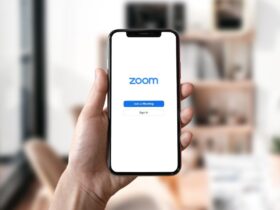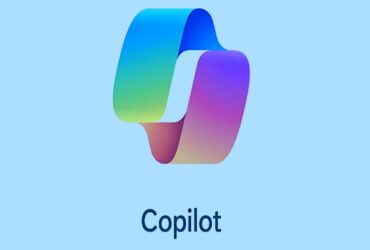A Virtual Private Network, or VPN, has become a key tool for anyone who wants safer browsing and more control over their digital activity. With the rise of online tracking, cyberattacks, and data collection, many users now rely on this technology to keep their information private. How does a VPN work is a common question, and the answer starts with one core function: encryption. A VPN shields your connection by securing your data and routing it through a protected server, making it harder for outsiders to view your activity or identify your location.
Beyond privacy, VPNs also support remote work, protect users on public Wi-Fi, and reduce exposure to risks on unfamiliar networks. They help create a secure tunnel between you and the sites or apps you use, ensuring your traffic stays out of reach from prying eyes. This introduction gives you a clear, simple view of what a VPN does, why people use it, and how it strengthens everyday online safety.
What Is a VPN and How Does a VPN Work?
A VPN (Virtual Private Network) is a service that provides devices with a secure and private link to the internet.
When you have been connected to a PlanetVPN, the transmission of your traffic happens not across the public internet like in the usual case but through a server controlled by a VPN provider.
The procedure covers your real IP address, scrambles your data, and guards your online activity from sneaky eyes.
Imagine browsing the web while wearing a disguise; no one can determine who you are or track you. This is predominantly what a VPN does with your online existence.
It guarantees that your information remains safe, even when using public Wi-Fi networks or unsafe connections.
Why VPNs Are More Relevant Today Than Ever
Increased online attacks and privacy concerns have been the main factors that have led to VPNs being preferred by more people in recent years. With more people working from home, many use public Wi-Fi, which puts them at risk.
Also, governments and big companies collect more data now, raising worries about online privacy. In addition, more people want an open internet as streaming sites add more shows worldwide. A VPN helps by giving users both safety and freedom online.
Why Use a VPN?
When you go online, your Internet Provider gives your device an IP address and routes your activity through its servers. In other words, the ISP sets you up with an IP address and sends your connection through its servers.
Although providers seem the safest, they may still share your data with ad companies, the government, or others. Plus, hackers can target them, putting your confidential information in danger.
A VPN is essential for using free Wi-Fi in a public place. These venues are often devoid of safety, enabling scammers to steal personal details like passwords or credit card numbers.
VPN is the service that disguises your traffic; accordingly, you protect your data.
Benefits of VPN Connections
VPNs aren’t just for geeks; they have advantages for all internet users. Here are some of the advantages of using VPNs.
1. To Maintain Anonymity While Browsing
A VPN hides your IP address, making it impossible for anyone to know that it is you who’s carrying out your online activities. Whether searching for sensitive subjects or just value your privacy, your activities go undetected via a VPN.
2. For Online Privacy and Security
Hackers can take your data using public Wi-Fi, like in cafes or airports. A VPN hides your connection, keeping passwords, bank details, and private files safe.
3. To Prevent Tracking by Advertisers and Websites
Nowadays, advertising companies track your usage of web pages and send you targeted ads.
But when your traffic goes through a VPN, sites can’t track what you do, so they can’t create a profile about you. This stops those pesky ads from chasing you.
4. To Bypass Internet Censorship
In some regions, the government controls the web and thus restricts access to some websites and Internet services. However, if you connect to servers in countries with free internet access, you can circumvent censorship.
This is very useful for people from the over-protected parts of the world who are under constant censorship.
5. Secure Data Transfer
If you work from home, accessing important files on your company’s network requires a secure connection. To ensure data safety, a VPN could be used.
The VPN-secured private connection encrypts the data, minimizing the risks of unauthorized access or data breaches.
6. Access to Geo-Restricted Content
Many online streaming platforms and websites use geo-blocking to restrict availability based on a user’s location.
With a VPN, you can circumvent these restrictions and enjoy a wide variety of shows, movies, and online services.
A Good VPN Should:
Countless VPN providers make it extremely challenging to select the right one. A VPN that provides the best protection and performance should be the one with these features:
1. Encrypt Your IP Address
The primary function of a VPN is to shield your IP address. A proper VPN should use top-of-the-line encryption to keep your IP addresses confidential and secure.
2. Have a Kill Switch
A kill switch is a key tool that cuts your device off the internet if the VPN link drops. This way, your real IP and data stay safe.
3. Two-Factor Authentication
2FA is an extra security measure for your VPN account that safeguards your data and ensures you are the account’s rightful owner. It asks you to prove who you
You must prove who you are with a second way, like a code sent to your phone. This makes it tough for others to get in without your okay.
4. Have Encryption Protocols
A VPN helps keep your privacy safe by hiding things like your web history, searches, and cookies. It’s key to encrypt cookies so others can’t see private info like your details, money data, or stuff from sites.
Conclusion
A VPN plays a vital role in keeping online activity private and secure. It adds an essential layer of protection for everyday browsing, remote work, and public Wi-Fi use. By encrypting your traffic and routing it through a safe server, it reduces the chance of data theft and shields sensitive details from unwanted access. Many users rely on this simple yet powerful tool to maintain control over their digital presence.
When you ask How does a VPN work, the core idea is straightforward: it keeps your connection safer by hiding your identity and protecting your information. With growing online risks, using a VPN is a smart step toward a more secure and confident online experience.













































Leave a Reply